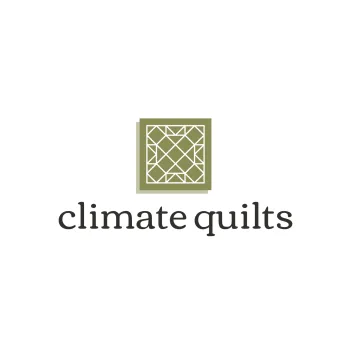Climate Quilts
Weaving threads of biodiversity and community resilience

© Climate Quilts
- Category
- Project
- Call
- DUT Call 2024
- Duration
- –
- Project coordinator
- Stichting Hanzehogeschool Groningen (HUAS)
Many city neighborhoods have little nature, hotter streets, and fewer places for people to meet and care for their area. Climate Quilts tackles this by asking a simple question: can lots of small, community-built gardens improve local nature and bring people together at the same time? The project focuses on turning neglected urban plots into 10 by 10 metre “quilt” patches in four countries, then learning what works across different places. It links three things that make cities thrive: caring communities (soul), healthy soil and biodiversity (soil), and social cohesion (society).
European cities face intertwined deficits in urban biodiversity, social cohesion, and resilient use of underutilised land. Climate Quilts targets biodiversity loss and fragmented green infrastructure by testing modular 10×10 m “quilt” plots as micro-ecosystems, while addressing weak community stewardship of public space. The core research questions are:
(i) to what extent do small, community-co-designed patches improve species richness/functional diversity (plants, pollinators, soil microbiota) and soil health and potentially microclimate; and
(ii) how do futures-oriented, participatory methods (Futures Literacy, Human Learning Systems) and eco-aesthetic design shift engagement, inclusion, and social value?
Comparative sites in NL (Groningen), IT (Palermo), SE (Stockholm) and EE (Viimsi) enable cross-context generalisation.
We co-design and build many small gardens with residents, artists, students, researchers, and municipalities. Practical steps include agreeing local access, preparing the soil, planting native and climate-resilient species, and looking after each patch together. We measure changes in plants, insects, and soils, and we listen to people’s experiences using shared tools, including Futures Literacy workshops and the Value Wheel. Activities run in the Netherlands, Italy, Sweden, and Estonia, with example sites such as Groningen’s SuikerTerrein, Palermo’s historic center, and fast-growing Viimsi near Tallinn. A playful “gamification” pilot in Palermo helps people use the sites more often.
Two annual cycles will establish community-designed quilts on underused urban plots via participatory eco-design, native planting, and urban farming, coupled with municipal agreements for access and maintenance.
A before–after evaluation integrates:
(a) biodiversity monitoring (plant/insect surveys; soil quality and soil-DNA metabarcoding) led by CREA and partners;
(b) socio-cultural assessment using HUAS’s “Value Wheel,” Human Learning Systems phases, and Futures Literacy Labs; and
(c) a gamification field trial in Palermo (MUV) to incentivise use of the sites. International exchanges, shared methods, and standardised 10×10 m plots support robust cross-site comparison and policy transfer.
Nature benefits could include healthier soil, more kinds of plants and pollinators, and cooler, greener corners in dense areas. Social benefits include new skills, stronger local ties, and more inclusive participation in shaping public space. The project will share what works through a video, short reports, training materials, and a practical toolkit so other cities can copy the approach. Evidence will support municipal policies on urban greening and climate adaptation, and the shared format makes it easier to scale through the DUT Knowledge Hub.
We expect measurable gains in local biodiversity (species richness/functional diversity of flora, pollinators, and soil microbiota), improved soil condition, and evidence of enhanced ecosystem function (habitat provision, potential cooling). Socially, we anticipate stronger community participation, inclusion of under-served groups, and durable stewardship capacities. Outputs include baseline/mid-term/final monitoring reports, educational materials, a practical toolkit, a documentary, academic publications, and policy advice for partner cities. The transnational protocol (standard plot + shared indicators) is designed for replication and scaling through the DUT Knowledge Hub, informing urban greening and adaptation strategies beyond the four pilot contexts.
Estonia
Italy
Sweden
The Netherlands
Blivande Idéer AB, Consiglio per la ricerca in agricoltura e l'analisi dell'economia agraria, Eesti Maaülikool, Frihamnens Kulturförening, MUV Società a Responsabilità Limitata Società Benefit, RISE Research Institutes of Sweden AB, Università degli Studi di Palermo
Comune di Palermo, Confraternita unione del miseremini in San Matteo, Gemeente Groningen, Stichting AOC Terra, Viimsi vald
Contact
Gloria Maria Cavalieri
g.m.cavalieri@pl.hanze.nl
climatequilts@gmail.com